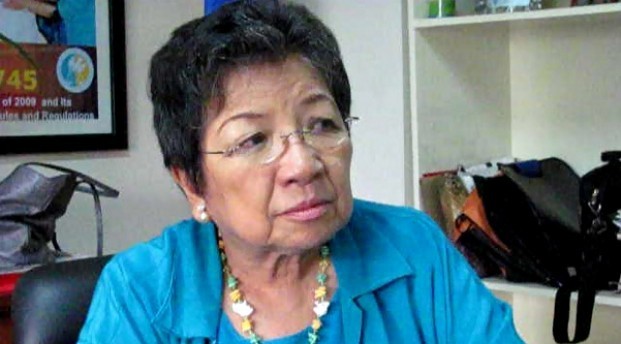SANTA ROSA CITY — The Philippine National Police is considering establishing a civilian network similar to the infamous Alsa Masa group in Davao City in the 1980s to beef up community support in the fight against crime, especially illegal drugs.
But a former top human rights official of the country urged caution in forming such a group, as it could lead to rights abuses similar to crimes committed against legitimate dissenters during the Marcos dictatorship.
Etta Rosales, former chair of the Commission on Human Rights, said the Marcos dictatorship used Alsa Masa formations to crack down on legitimate dissent, labeling the leaders communists.
Intelligence gathering
The PNP is planning to expand the Community Mobilization Project (CMP), an intelligence-gathering system launch ed in Calabarzon (Cavite, Laguna, Batangas, Rizal, Quezon) last year.
“It’s like the Alsa Masa,” the regional police director, Chief Supt. Edward Carranza, said, referring to the 1980s civilian force formed to run after communist rebels but that turned into a vigilante group that became dreaded for widespread human rights abuses.
Under the CMP, the police have formed more than 266 “clusters,” each one composed of 10 to 20 families in every village, for information gathering in Calabarzon.
Civilian groups
Unarmed volunteers pass on intelligence about drug and crime suspects as well as communist rebels and sympathizers for investigation by the local authorities.
PNP Deputy Director General Camilo Cascolan on Saturday said plans to expand the CMP were discussed during the 4th National Advisory Council Summit held here recently.
The advisory councils are civilian groups composed of “sectoral leaders, experts and highly accomplished individuals,” according to a briefing material.
About 17,000 people have joined the advisory councils since the establishment of the system in 2009, raising logistical and financial support for the PNP, according to National Advisory Council chair Prudencio Gesta.
The councils have raised funds for the acquisition of body cameras and bulletproof vests for policemen, he said.
They have also raised funds to help the children of police officers who have died in the line of duty, he said.
Cascolan said the PNP had invited representatives from the LGBT (lesbian, gay, bisexual and transgender) community and foreigners residing in the Philippines to join local advisory councils.
“We need these people…We are trying to establish a network of sharing best practices,” Cascolan said.
‘High respect’ for PNP
Contrary to the negative public perception, Gesta said, people in the provinces have “high respect” for the PNP, as crime rates have gone down over recent years.
He said there had been a drop of 20 to 35 percent in crime volume in different regions, although he could not readily provide figures for the national level.
“The essence of [the police drive against illegal drugs] is very good but sometimes the implementation is improper,” Gesta said, referring to President Duterte’s war on drugs that has killed thousands of mostly poor drug users and pushers.
“We always tell the PNP… arrest people, [carry out] buy-busts legally. But here in Manila, what’s always highlighted is the negative,” he said.
Rosales, herself a victim of human rights abuse during the Marcos dictatorship, was wary about any group similar to Alsa Masa.
“We denounced Alsa Masa as rabid anticommunist formations used by the Marcos government to repress all forms of legitimate dissent by labeling them communists,” Rosales said in a text message to the Inquirer.
“Anything similar to Alsa Masa threatens our right to free expression and free thought, something we had won in the Edsa revolt, which we treasure as among our cherished values on civil liberties provided in the Charter’s Bill of Rights,” she said.
“There is always a danger of lumping together crime, drugs and insurgency, thus labeling all forms of legitimate dissent as ‘insurgents’ involved in criminal and illegal drug activities. Thus justifying warrantless arrests,” she added.
Lack of knowledge of the rule of law and due processes based on the principles of human rights results in “labeling to justify illegal acts of arrest and detention,” Rosales said. —With a report from Jeannette I. Andrade
